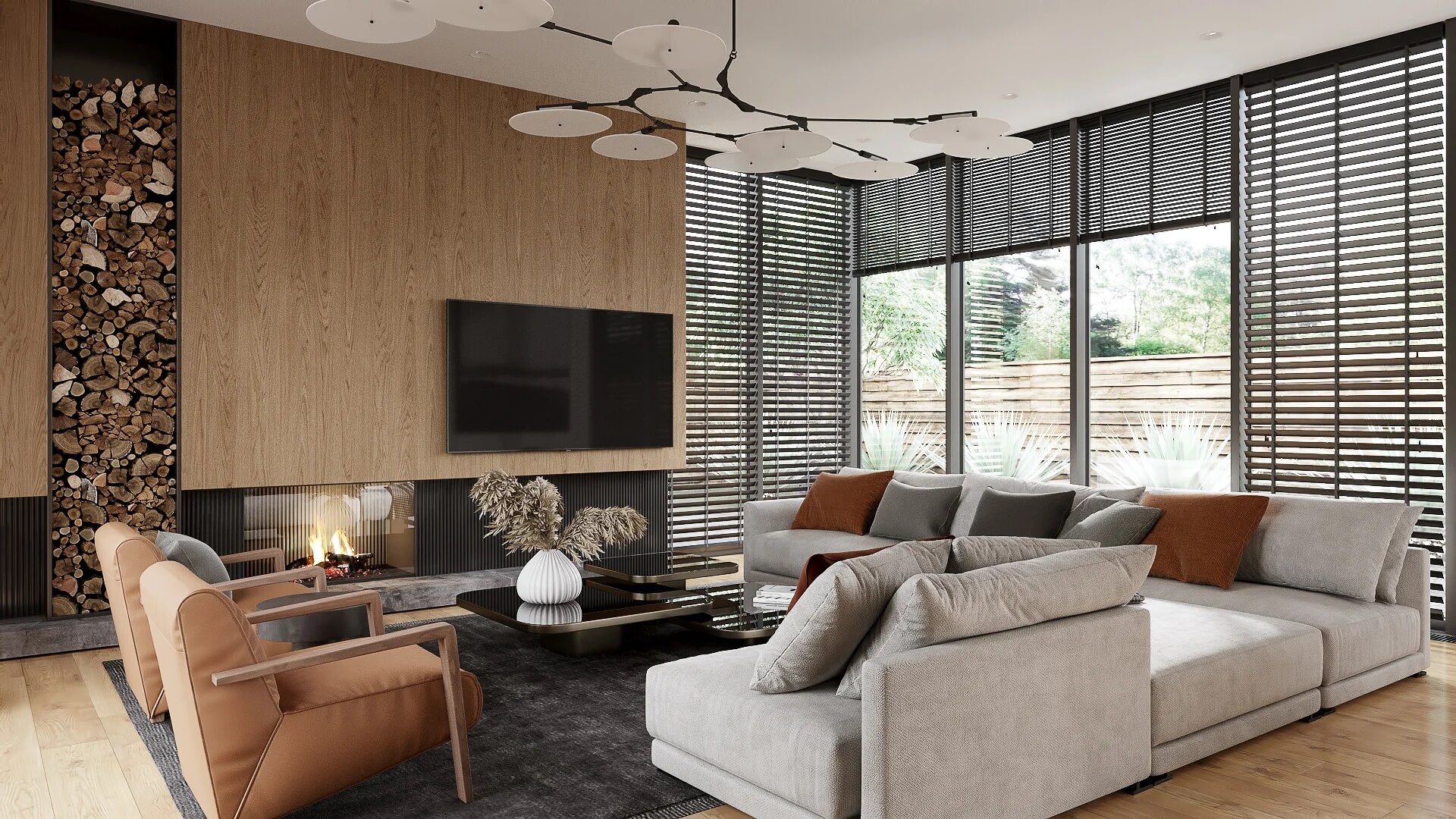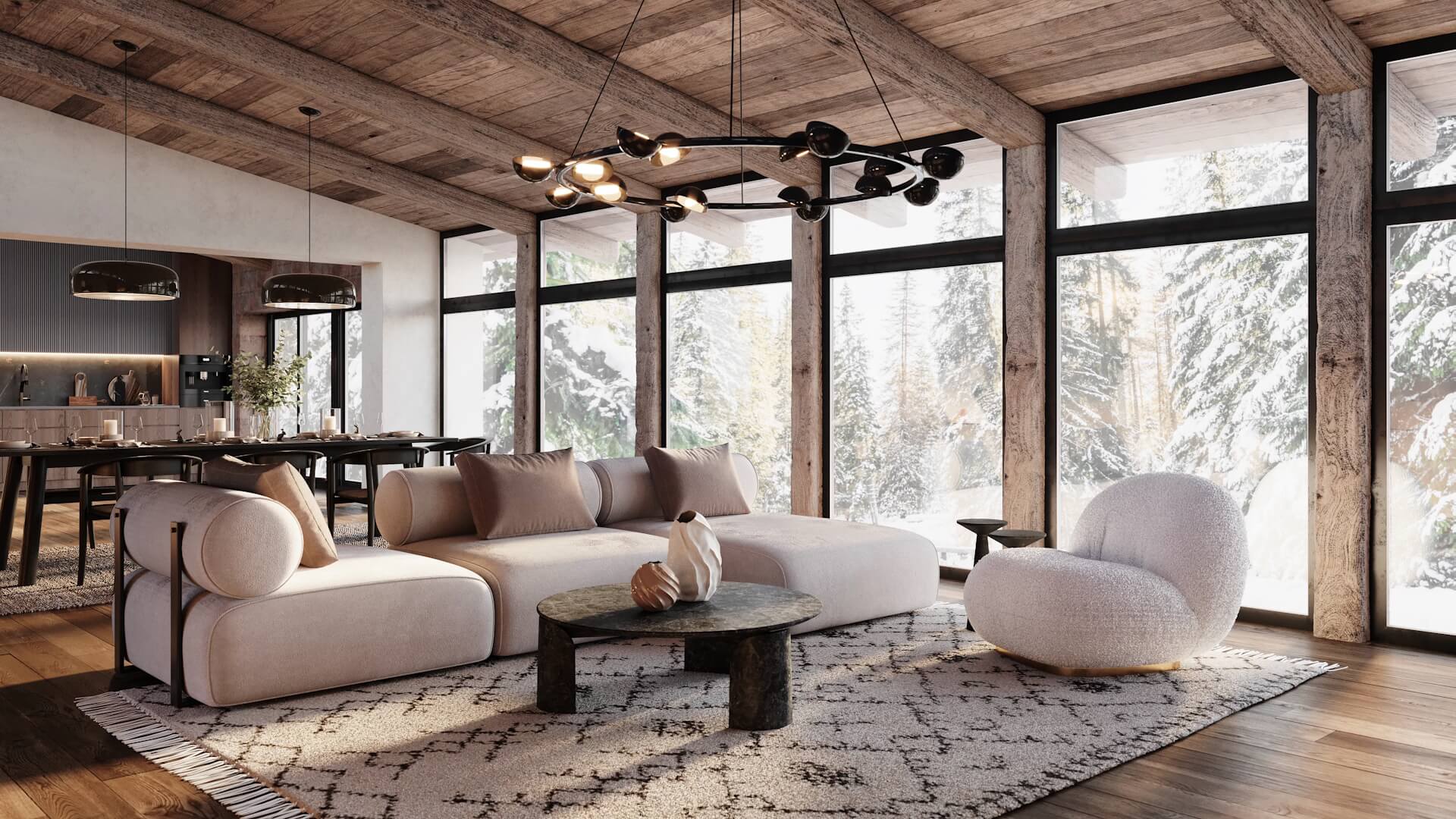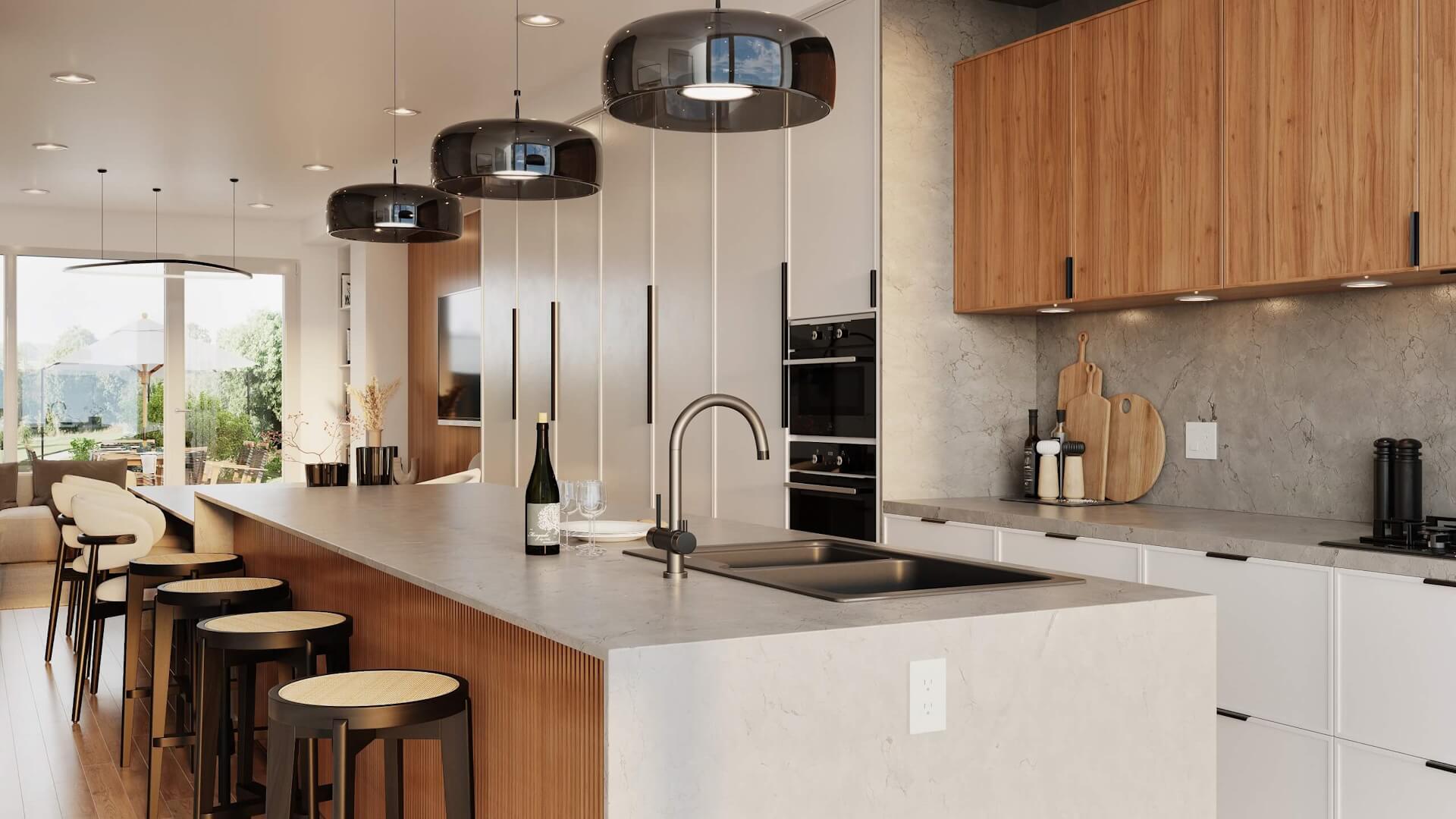Interior design presentations are a crucial part of the job of an interior designer. For a well-conducted one can pull out even a rather weak design and make it work. A bad one, on the other hand, can lead to failure, despite all the efforts and competence of the designer.
How many times have you wondered why great design presentations fail? Why doesn’t the client see the beauty of the idea that would turn his home into a marvelous, stylish, and comfortable place? And this is after all the work that has been put into it. Something just goes wrong at the stage of the presentation, without the interior designer even noticing when it happens. While he’s all excited about how masterfully he has used the space, what exquisite color palettes he has chosen, and how nicely he managed to use the oblique ceiling, the clients look at the drawing blankly, apparently unimpressed.
The trick is that the job of an interior designer not only involves excellent design skills but also requires one to be a salesman. Presentation and negotiation are inherent skills for a salesperson. Unfortunately, this precious knowledge is not that popularized. It is widely believed that the only thing that interior designers must pay attention to is the design itself, and this is the only thing that truly matters. As a result, the part where the specialist must actually present his masterpiece is often neglected. This is highly unfair and can be avoided by using some basic presentation tricks we’d like to present you.
So, let’s learn from the mistakes of others and avoid putting our excellent ideas and hard work at risk!
#1. Poorly Prepared Speech

This might seem obvious, yet how often this simple rule is neglected? It is common to postpone the speech preparation till the last moment. And then, something important comes up, and the designers just hope for the best. As a result, the design presentation fails. The speech is inconsistent, poorly organized, lacking structure and logic, and important things are forgotten. It leaves a negative impression and shapes the perception of your project to a large extent.
Obviously, in order for your presentation to be effective, you must prepare it in advance. The reasons for your choices, emotions, and images that your solutions evoke – all that must be told in an orderly, cohesive, carefully planned manner, occasionally spiced up with emotions. However, do not overdo with the latter, for it’ll seem inappropriate and unprofessional.
Solution
To achieve this effect, you need to rehearse as much as possible. First, write the text and read it before a mirror. Read it as many times as you need – until you memorize the words, the facial expressions, and the intonations. Experiment with the way you deliver the speech. Then, try to present it a few times before an audience – your friends or family. Preferably both, of course.
It is even possible to rehearse the part where you need to improvise – answering questions from the clients. Dig into your experience. Try to run the whole thing in your mind. Imagine the hardest question you can possibly get while staying calm. Repeat this exercise twice or even three times – and you’ll nail the presentation.
#2. Failure to Deliver The Speech Within a Reasonable Time Frame

This deceitfully simple rule is a really common reason for the failure of interior design presentations as well. The problem is that people can keep concentration only during a certain time, after which the person gets bored and the mind drifts away. According to the scientists, this amount of time equals 7-10 minutes. Obviously, boredom is not something an interior designer looks for in an interior design presentation. Yet, this is exactly what one gets when talking for hours and looking to impress the client with eloquence.
On the other hand, it would be a huge mistake not to use this time. If your presentation is too short and gives only basic information, you’ll look unprepared, lacking enthusiasm and professionalism. Besides, you’ll lose an opportunity to present your interior design project to its advantage.
Solution
All you need to do is to prepare the speech and train to deliver it within 7-10 minutes. Additionally, while speaking, watch the tempo – it shouldn’t be too slow or fast. And pay attention to parasite words – a clear speech will give you additional points.
#3. Lack Of Attention To The Clients’ Reactions

Sometimes even the best of specialists commit this fatal mistake during interior design presentations. Being immersed in the speech and not paying attention to the reaction of the clients is a very costly mistake. It can lead to major misunderstandings and be counter-productive.
Solution
During the interior design presentation, you need to turn into a psychologist. Notice the reactions of the clients to what you are saying – facial expressions, gestures. Are they looking at your design with doubt or disapproval? Ask a question right at that moment. Listen to what they have to say, and react accordingly. The client requests some major changes you are absolutely opposed to? Like painting the walls black? Explain to them the implications of what they’re asking for. If the client still wants the changes to be made, tell them that they’ll bear full responsibility for the consequences. Or offer a compromise – like a darker shade of the initial color. The client is happily beaming? You’re on the right path!
#4. Failure To Produce Impactful Visual Materials

Describing verbally what the clients will get can be accurate and effective when you are working with other interior designers on a project. As for the clients themselves, they do not understand the language of drawings. The image must speak to the audience, captivate, and make people fall in love with the design. The mood boards can only give the customer a feeling of what they’ll get.
Solution
To produce a lasting impact, use 3D rendering for interior designers. Show the audience still 3D architectural visualizations of the space, interactive 360-degree view, virtual 3D tour, or even create a fully immersive experience with virtual reality. That’ll catch their attention and make your design stand out! 3D Architectural Renderings will provide your customer with the exact information on the design in its full splendor. The person will be able to see the atmosphere of the location they’ll get and will respond to it emotionally.
#5. Failure To Provide The Client With Sufficient Information

Drawings and sketches are wonderful tools for a designer to work on, but for a non-specialist, they give very little information. This is why when during the presentation the client receives information only from the drawings and sketches, it does not answer the primary need to fully understand your project. As a result, they cannot appreciate the interior design.
Solution
To convey the idea with success, you must speak the language the client understands. And that would be the language of images. To make the client understand why a kitchen studio will work better for them than a separate small kitchen and a living room, you’ll have to show it to them. And how can one show something that does not exist? Using 3D rendering services for interior design, 360-degree views, and VR. Use them to demonstrate how much better it’ll look and how much more functional it’s going to be – and your presentation will be a success.
As you can see, delivering a successful presentation is not that difficult. Take into account our advice, prepare carefully, and deliver a killer presentation of your project. To showcase your masterpiece to the client with impactful 3D Solutions, contact our 3D architectural rendering studio. Over 11 years of work in the field of Architectural Visualization, we’ve created more than 3500 projects. We will provide you with high-quality 3D visualizations, panoramas, and VR solutions for your wonderful designs that will make your presentation stand out.
Want to learn how much your project costs? See how we evaluate 3D rendering projects

Irma Prus
Content Writer, Copywriter
Irma writes articles and marketing copy for ArchiCGI. Her dream is that more people discover the power of CGI for architecture. Irma is into neuromarketing, ruby chocolate and Doctor Who series.





Comments
Caroline